Recent Posts
Monthly Archive
- May, 2014 (1)
- February, 2014 (3)
- February, 2013 (3)
- January, 2013 (3)
- December, 2012 (1)
- September, 2012 (1)
- April, 2012 (1)
- February, 2012 (2)
- October, 2011 (1)
Sri Lanka Department of Wildlife Conservation Study Tour - 22 Aug. – 1 Sept. 2012
At the request of the Sri Lanka Department of Wildlife Conservation the Asian Nature Conservation Foundation organized a study tour of south India for training wildlife staff at the level of Deputy Rangers in wildlife conservation and protected area management. The programme attempted to present the Indian experience in protected area management through classroom presentations and field visits. The tour thus comprised Lecture sessions at the Indian Institute of Science in Bangalore and Field visits to Bandipur National Park, B.R.T Tiger Reserve and the Madras Crocodile Bank Trust.:
The themes addressed by the classroom sessions conducted by senior staff from ANCF, Centre for Ecological Sciences, IISc, as well as external experts included those listed below:
23 rd August 2012
- Protected Area Management in India by Dr. M.H.Swaminath.
- People’s Participation in PA management by Dr. Nitin Rai.
- Birds in India’s Protected Areas by Dr.M.B.Krishna
- Elephant Conservation and Human – Elephant Conflict Management by Mr. Ajai Misra.
- Understanding and Alleviating Conflict between Endangered Species and the Rural Poor by Dr. M.D.Madhusudan
24 th August 2012
- Ecology and Management of the Asian Elephant by Dr. R.Sukumar.
- Film Screening – Elephant Days and Nights.
- GIS/Remote Sensing Applications in PA Management by Dr. Narendran Kodandapani & Dr. Avinash K G.
- Eco – Tourism Development and Management by Mr. Anur Reddy IFS.
- Management of Large Carnivores by Dr. Ravi Chellam.
- Developing Conservation Technologies by Mr. G.V.Srinivas
On the morning of the 25 th of August 2012 the participants left Bangalore for the Bandipur National Park, arriving in time for lunch. That evening the participants were shown the various mitigation measures and strategies adopted by the management of the Bandipur National Park to effectively manage and mitigate human-elephant conflict. As a part of this the management and maintenance of Elephant Proof Fences and trenches were discussed on site.
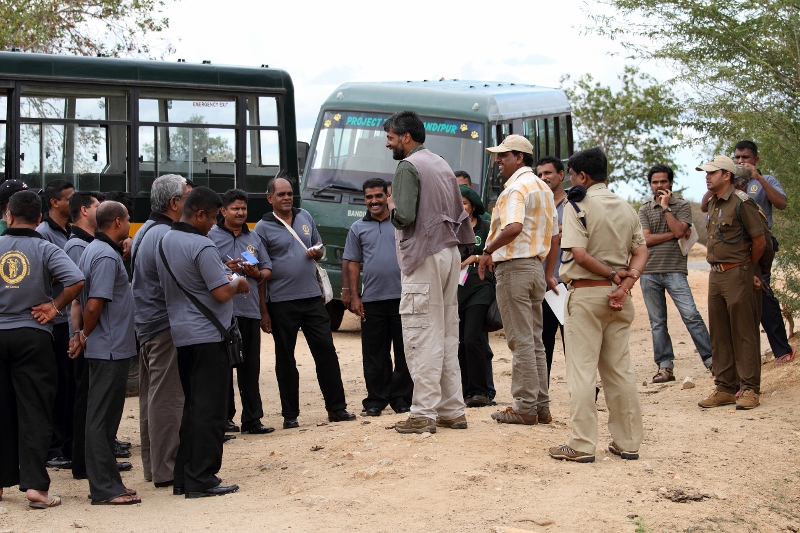
After this the participants were taken into the Park to visit anti – poaching camps located in strategic and vulnerable areas.
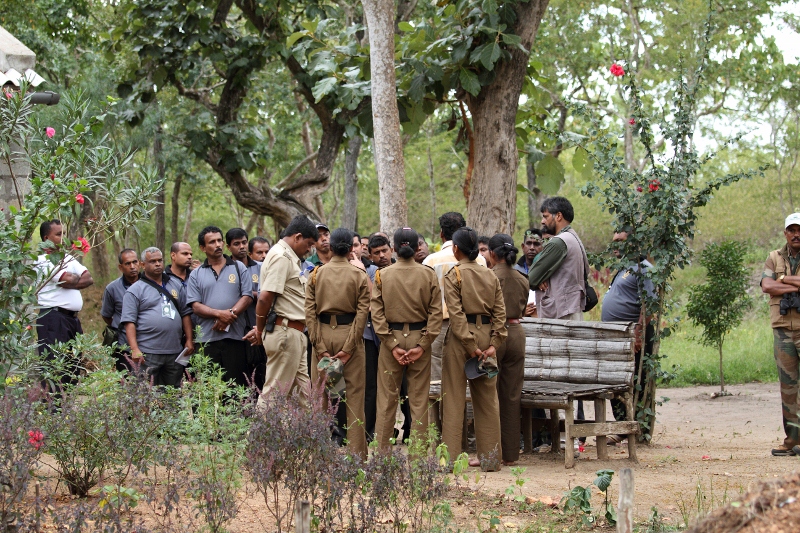
The participants interacted with the personnel manning the anti – poaching camps. They were surprised to see a number of women guards at the camps. The importance of having women guards was discussed in detail. It was explained that a significant proportion of the people who illegally enter the Park to graze cattle or collect firewood were women.
The next morning the Field Director of Bandipur National Park, Mr. Pushkar, gave a presentation on various facets of the Park and the challenges faced by his team in its management. This was followed by an interactive session with the participants.
The team then visited the Gopalaswamy Betta and Temple which is a place of historic and religious importance in the Park. The role played by temples in the protection of forested landscapes in ancient times was explained. The elevated location of the temple also offered a bird’s eye view of the Park’s landscape.
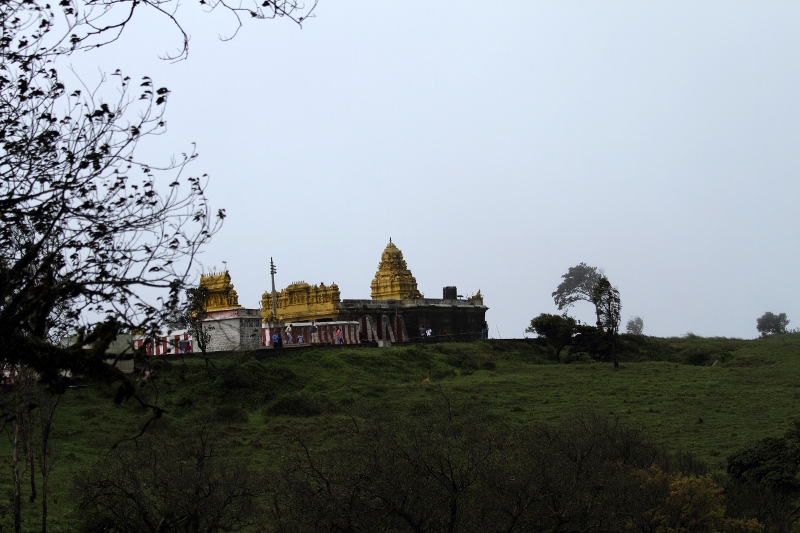
In the evening the importance of securing ‘corridors’ ( or narrow strips of land connecting larger habitats to facilitate the movement of large mammals like elephants) was discussed on site. The participants were shown one such corridor recently secured by the Karnataka Forest Department. This particular corridor runs parallel to the Moyar Gorge which acts as a natural barrier to the movement of elephants between the Bandipur National Park and the Mudumalai Wildlife Sanctuary. The importance of this corridor was brought starkly to light by a visit to this formidable natural barrier.
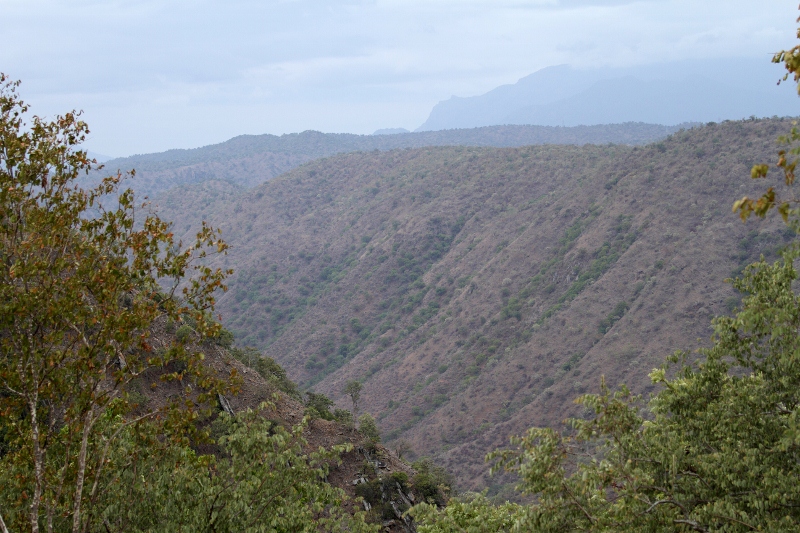
The next day, prior to their departure to B.R.T Tiger Reserve the participants had an opportunity to interact with the Forest Minister of Karnataka Mr. CP Yogeshwara,who briefed them on the political dimensions of Protected Area Management in Karnataka.
B.R.T Tiger Reserve is located at the cross roads of the Western Ghats and the Eastern Ghats landscapes and is an important ecological bridge that provides much needed safe passage to wildlife between these two important bio-geographical realms. Interesting biodiversity mosaics and peculiarities make B.R.T a treasure trove of biodiversity.
On the evening of their arrival the participants were given an opportunity to walk through a part of the reserve and to get a feel of this unique landscape.During the walkthrough the participants had an encounter with a sub-adult bull elephant. Much to the surprise of the participants the bull did not display any sign of aggression towards the group. This lead to an interesting discussion on the behavior of elephants in secure and disturbed landscapes.
After the walkthrough the principles and practices of captive elephant management and welfare as well as the role of captive elephants in Protected Area management and in the mitigation of human – elephant conflict was discussed. The vital role that mahouts play in the management of captive elephants and the importance of mahout welfare as an essential component of captive elephant management and welfare was discussed in depth.
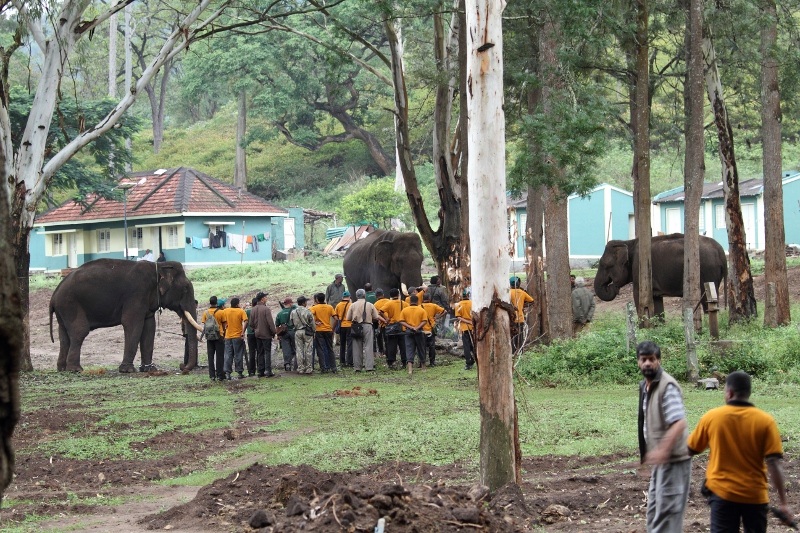
The next morning the participants were given a short tour of the park by the Range Forest Officer Mr. Khan who explained the various measures taken for prevention of soil erosion, management of waterholes and the maintenance of patrolling roads in high rainfall areas. This was followed by a visit to the Bililgiri Ranganatha Temple, from which the park takes its name, for a bird’s eye view of the landscape.
This was followed by a presentation by the Field Director Mr. Vijay Mohan Raj who is also a well known wildlife photographer.
The B.R.T. Tiger Reserve has an indigenous tribe called the Soligas (Shola – forest; iga – belonging to), who have being living in these forests since ancient times and continue to do so. They are an integral part of the forest and have an intricate understanding of its flora and fauna.
In the evening the participants were taken to one such Soliga settlement located in the Park and they got an opportunity to interact with them and learn about the various measures taken by the Karnataka Forest Department for their welfare.
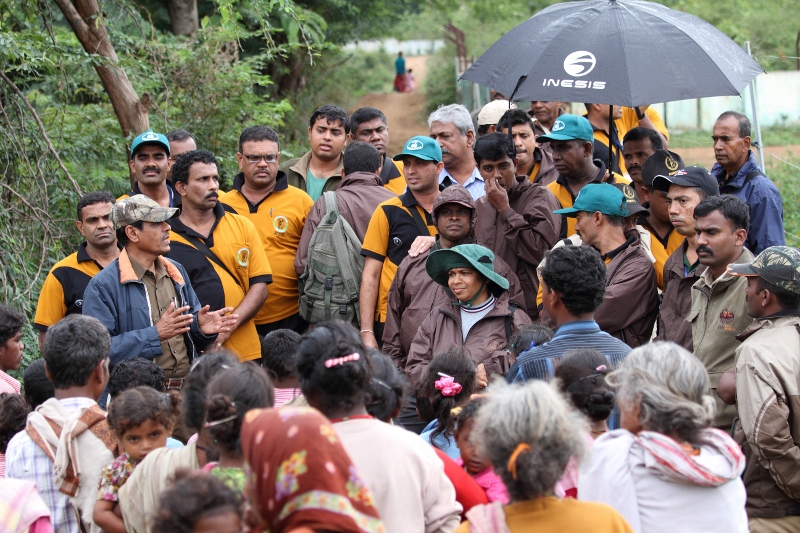
The next morning the participants then proceeded to Mysore city for a bit of local sightseeing before boarding the train to Chennai from Bangalore.
On the 31 st of August the participants were taken to the Madras Crocodile Bank Trust. The MCBT houses the Irula tribal co-operative which is run by the Tamil Nadu Govt. Here the Irulas (a tribe that specializes in handling snakes) extract snake venom from captured snakes before releasing them back into the wild. The venom is used for the manufacture of ‘anti – venom’ that is used in the treatment of snakebites.The participants got to watch the extraction process first hand. The multiple benefits to the tribals from this sustainable economic activity was discussed.
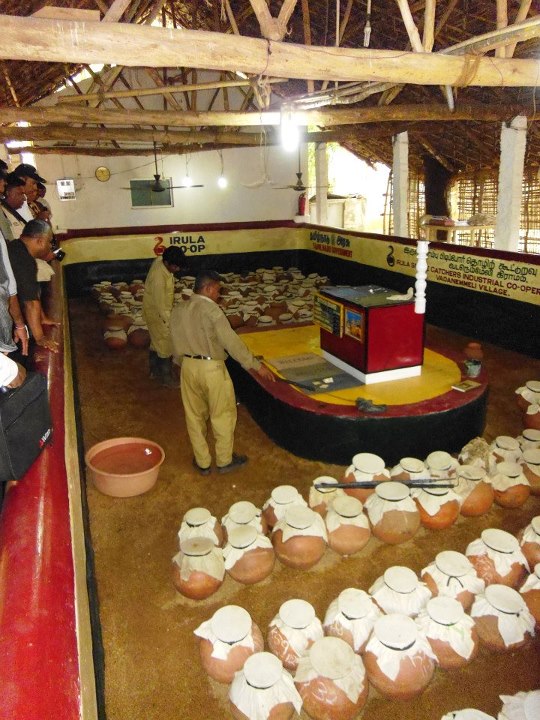
The participants were given a guided tour of the well known Madras Crocodile Bank Trust (MCBT) facility and briefed about the institution’s experience with the captive breeding of crocodiles. An interactive session was then conducted with an emphasis on the mitigation of human – crocodile conflict and the procedures to be adopted while capturing and translocation. At the end of the day the participants were awarded their course completion certificates in a small ceremony held at the MCBT.
The next morning the participants left Chennai for Colombo after the successful completion of the Study Tour.



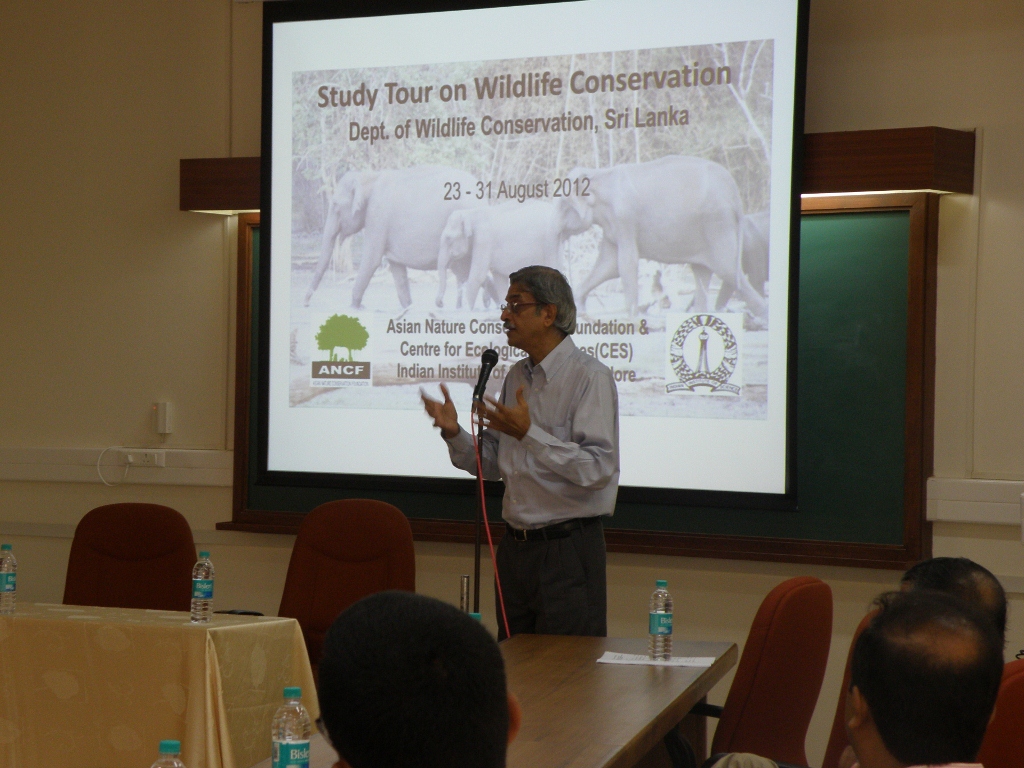
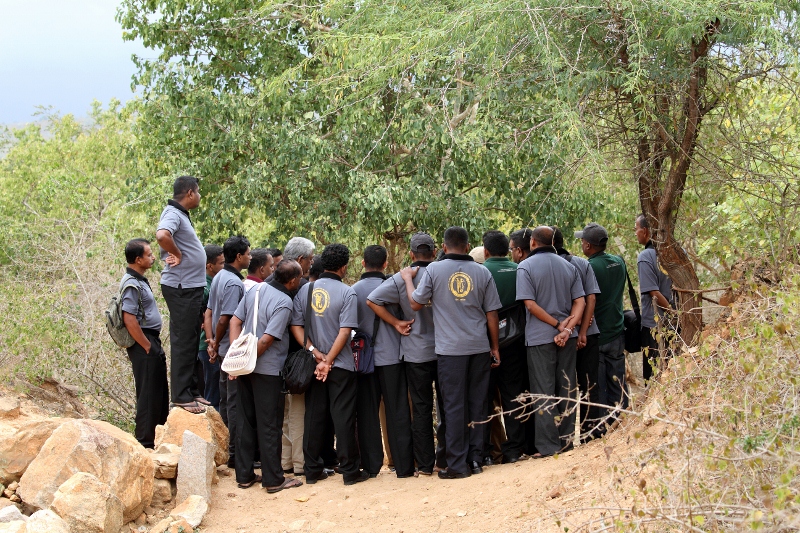
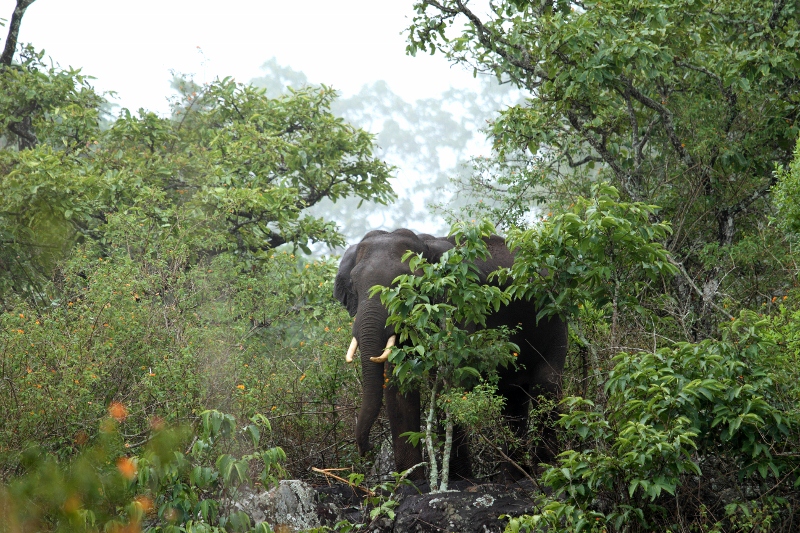
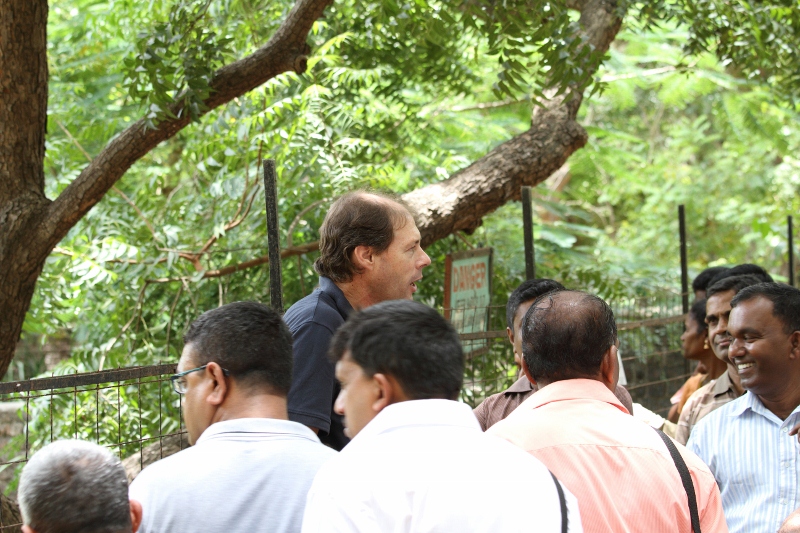
Post new comment